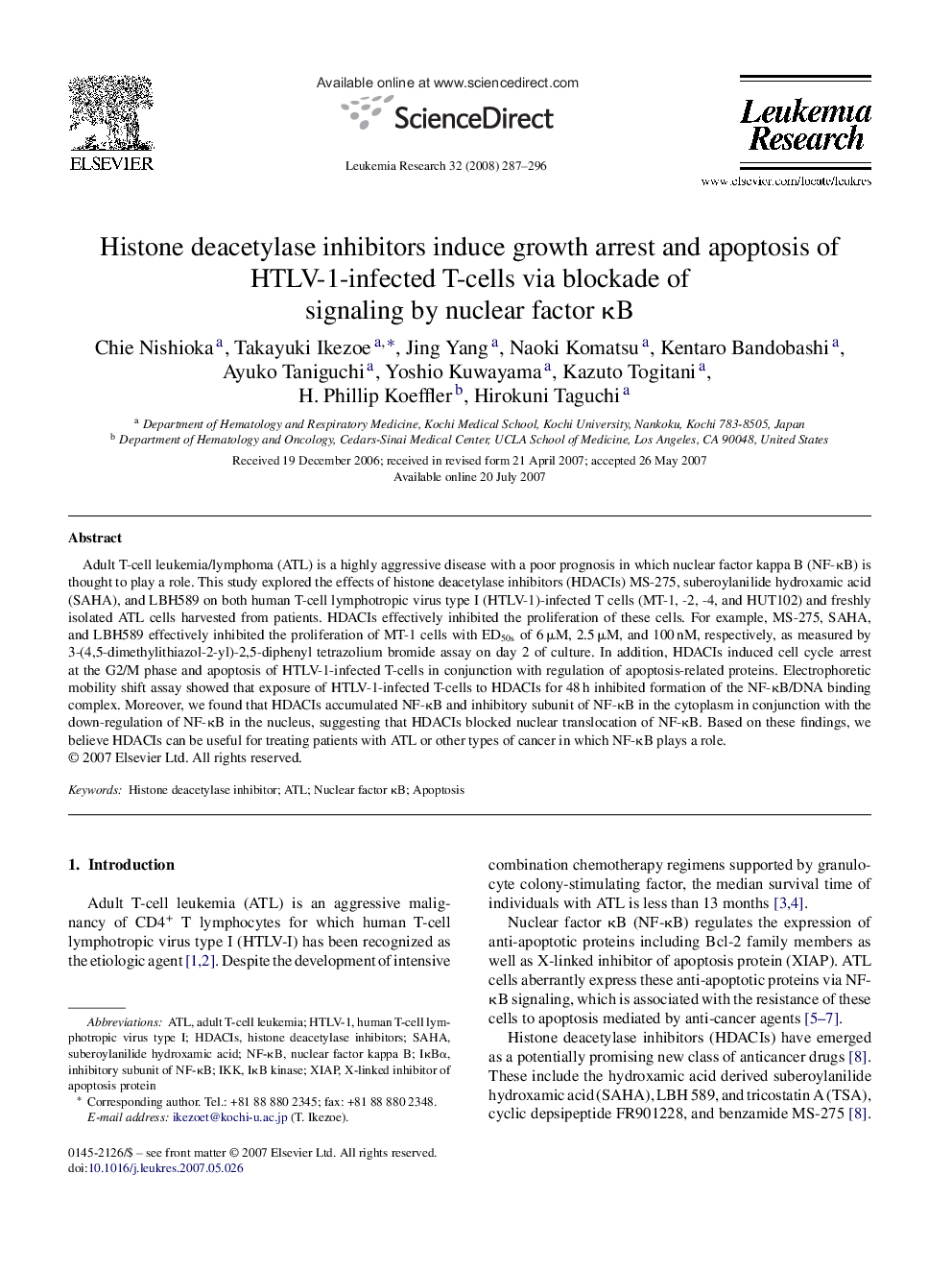| Article ID | Journal | Published Year | Pages | File Type |
|---|---|---|---|---|
| 2139901 | Leukemia Research | 2008 | 10 Pages |
Adult T-cell leukemia/lymphoma (ATL) is a highly aggressive disease with a poor prognosis in which nuclear factor kappa B (NF-κB) is thought to play a role. This study explored the effects of histone deacetylase inhibitors (HDACIs) MS-275, suberoylanilide hydroxamic acid (SAHA), and LBH589 on both human T-cell lymphotropic virus type I (HTLV-1)-infected T cells (MT-1, -2, -4, and HUT102) and freshly isolated ATL cells harvested from patients. HDACIs effectively inhibited the proliferation of these cells. For example, MS-275, SAHA, and LBH589 effectively inhibited the proliferation of MT-1 cells with ED50s of 6 μM, 2.5 μM, and 100 nM, respectively, as measured by 3-(4,5-dimethylithiazol-2-yl)-2,5-diphenyl tetrazolium bromide assay on day 2 of culture. In addition, HDACIs induced cell cycle arrest at the G2/M phase and apoptosis of HTLV-1-infected T-cells in conjunction with regulation of apoptosis-related proteins. Electrophoretic mobility shift assay showed that exposure of HTLV-1-infected T-cells to HDACIs for 48 h inhibited formation of the NF-κB/DNA binding complex. Moreover, we found that HDACIs accumulated NF-κB and inhibitory subunit of NF-κB in the cytoplasm in conjunction with the down-regulation of NF-κB in the nucleus, suggesting that HDACIs blocked nuclear translocation of NF-κB. Based on these findings, we believe HDACIs can be useful for treating patients with ATL or other types of cancer in which NF-κB plays a role.
